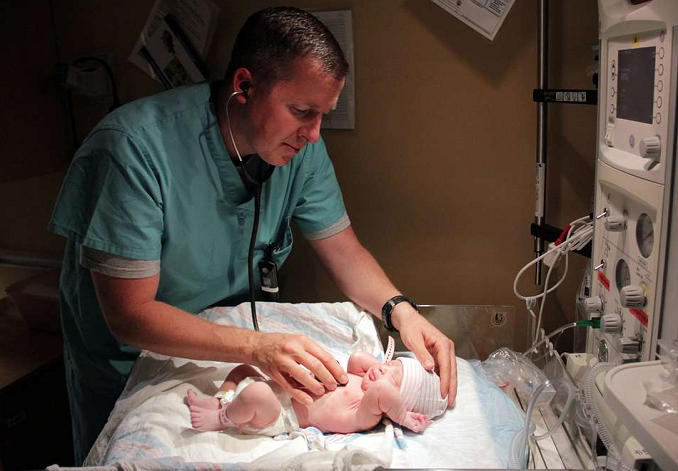Article published in The Hill: “No, OBGYNs are not systematically fleeing states that banned abortion.” There’s been a lot of media coverage claiming that they are, but researchers in public health, medicine, and economics from Stanford, Berkeley, and elsewhere tried to look at this more analytically and found “no evidence of such an exodus.”
(Video also available on Facebook, TikTok, and Instagram.)
They found no evidence that OBGYNs were leaving states with abortion bans and no evidence that fewer OBGYNS were moving to states with abortion bans.
They took a closer look at the media coverage claiming otherwise and they found that basically a bunch of different reporters were interviewing the same 15 doctors.
SUPPORT LIFENEWS! If you want to help fight abortion, please donate to LifeNews.com!
Keep in mind there are tens of thousands of OBGYNs in the United States.
They also emphasized that broader doctor shortage issues predate Dobbs and closure of L&D departments have been inappropriately attributed to Dobbs when there’s other problems. Specifically, they conclude:
Focusing on a physician exodus that is not actually happening distracts us from addressing the real, plentiful problems with the delivery of medical care.
This is so well said. There are many complex problems with American reproductive healthcare. Abortion advocates continually reduce these issues to a question of abortion access. Several examples:
Yeni Alvarez died at 31 weeks pregnant after persistent health problems in pregnancy combined with economic disadvantage and lack of access to quality healthcare. She had previously said that if a doctor had to choose between either her life or her unborn daughter’s life, they should prioritize her daughter. She gave zero indication she wanted an abortion. After her death, The New Yorker still framed her story as one of lack of abortion access. Details: New Yorker prioritizes abortion over reproductive justice
L&D units are closing in rural areas of the country. This is happening even in pro-choice states like California. Declining birth rates and aging populations mean rural maternity wards see fewer and fewer patients. Their fixed costs (24/7 staffing, maintaining facilities and equipment) don’t change much, but without sufficient patients their income declines. And often rural populations are on public insurance with lower reimbursement rates to hospitals. Meanwhile the fact of fewer patients makes it harder to recruit and retain staff or maintain staff clinical skills.
Issues of rural healthcare access have persisted for decades, yet abortion advocates will focus on closures in pro-life states and implausibly claim the primary factor is abortion bans. Details: Are OBGYNs fleeing Idaho because of abortion laws?
Maternal mortality rates on average are higher in pro-life states. These rates are affected by multiple factors, including maternal age trends, proportion of the population in rural areas, proportion of the population using public vs private health insurance, racial disparities, prevalence of chronic conditions (e.g. diabetes, hypertension), state policies regarding postpartum Medicaid coverage and maternal mental health care, and more.
Assessments that try to account for these factors show variable relationships between abortion laws and maternal mortality rates. Abortion advocates dismiss all of this to promote the narrative that abortion restrictions cause higher maternal mortality rates. Details: Maternal mortality rates in pro-life vs pro-choice states
There are a lot of approaches to improving reproductive healthcare that both pro-life and pro-choice people can support. For example, we could extend postpartum Medicaid coverage, fund scholarships or loan repayments for midwifery students in maternity care deserts, supply hospital L&D units with ready-to-use hemorrhage kits, etc. When activists push abortion as the only answer, they shift focus away from less controversial and more actionable solutions we should be working toward.
LifeNews.com Note: Monica Snyder is the executive director of Secular Pro-Life, an organization that uses non-religious arguments to promote the pro-life perspective. This is where the article previously published












